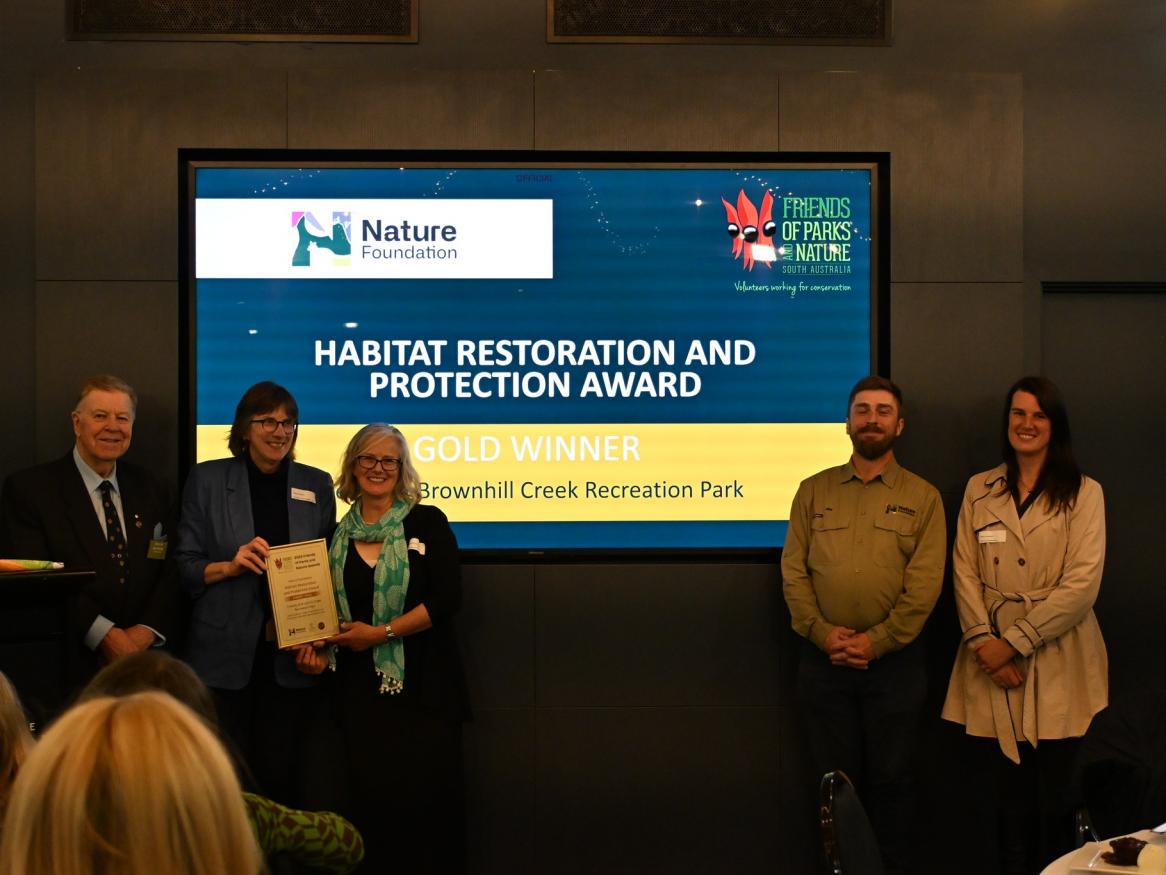Latest news
Search news stories
Enter a keyword to search news.
Tracing the rapid spread of the fox across Australia

New research reveals that red foxes colonised Australia in just 60 years. Environment Institute Deputy Director Associate Professor Damien Fordham says the findings help explain past biodiversity losses and provide vital data to prevent future extinctions, offering a new framework for tracking other invasive species such as cats. Read the full study published in Diversity and Distributions, and article for The Conversation here.
[Read more about Tracing the rapid spread of the fox across Australia]
Environment Institute Members Share Insights on the Harmful Algal Bloom at the Federal Senate Inquiry

Dr Dominic McAfee, Future Making Fellow and Professor Andrew Lowe, Director, Environment Institute were invited to appear at the Federal Senate Inquiry for the harmful algal bloom (HAB), alongside EI members Professors Luke Mosley and Ivan Nagelkerkern. Professor Lowe spoke of the need to restore both marine and terrestrial ecosystems to help stop sediment and nutrient run off from the land - by restoring waterways and riverine systems - and soak up nutrients and sediments that enter coastal waters – by restoring shellfish reefs and seagrass ecosystems. Dr McAfee has been working closely with communities, traditional landowners, and school students on community-based restoration projects. One of these projects is creating oyster baskets to help shellfish ecosystem restoration in the Port River in partnership with the OzFish Adelaide Chapter.
Dr Phillipa McCormack on Reforming Australia’s Outdated Environment Laws

Environment Institute Future Making Fellow Dr Phillipa McCormack co-authored a recent article for The Conversation, outlining key recommendations for how Australia’s environment laws should be reformed. The Albanese Government has indicated it is close to striking a deal with the Coalition on new environmental laws, which must deliver substantial improvements. In the article, they provided various recommendations for the reform, covering topics like an independent watchdog, habitat protection, climate change, First Nations voices, logging, and the need for defined targets.
[Read more about Dr Phillipa McCormack on Reforming Australia’s Outdated Environment Laws]
PFAS Breakthrough: Say Goodbye to the "Forever Chemical"

Research led by Dr Cameron Shearer is pioneering new ways to break down PFAS, the persistent “forever chemicals” polluting soil and water. Dr Shearer and his team have found that light-activated catalyst technology can degrade PFAS into harmless compounds, offering a sustainable approach for environmental remediation and safer communities. The work is also featured in the new PFAS and Microplastic Capability Statement, highlighting pollution detection, degradation technologies, and sustainable chemical solutions.
[Read more about PFAS Breakthrough: Say Goodbye to the "Forever Chemical"]
Bandi Bushcare Awarded Nature Foundation Habitat Restoration and Protection Award

The Bandi Bushcare project, led by the Friends of Brownhill Creek members Dr Jamin Packer, Environment Institute member, and Dr Rosslyn (Rossi) von der Boch were awarded Gold award for the Nature Foundation Habitat Restoration and Protection Award. Their project titled “Bandi Bushcare: Habitat Restoration and Protection in Wirraparinga-Brownhill Creek” promotes a community of volunteers that protect and create habitat for the endangered southern brown bandicoot (marti) in the Brownhill Creek Recreation Park.
[Read more about Bandi Bushcare Awarded Nature Foundation Habitat Restoration and Protection Award]
15 Million-Year-Old Fossil Shells Reveal Traces of Colour Patterns in South Australia

University of Adelaide PhD candidate Mahala Fergusen, together with Environment Institute members Dr Liz Reed and Assoc. Prof. Diego García-Bellido, examined fossil shells from the Murbko Marl. They discovered 18 different species responded to UV light, displaying stripes, bands, and chevrons that had been hidden for millions of years. Through the use of UV light, this study has provided a better understanding of molluscs but also a vivid reminder of South Australia’s oceanic past.
New Research on Governance Challenges for Ecosystem-Based Adaptation in Bangladesh

Environment Institute member Professor Melissa Nursey-Bray has co-authored a new article examining the governance challenges of implementing ecosystem-based adaptation (EbA) in Bangladesh. The paper, written with Syed Mohammad Aminur Rahman and Md. Masud-All-Kamal, explores how wetlands, which are vital for biodiversity and community resilience, are increasingly under threat from climate change and ecological degradation.
[Read more about New Research on Governance Challenges for Ecosystem-Based Adaptation in Bangladesh]
Global Collaboration in Action: United Nations Association x Environment Institute

The Environment Institute was honoured to host Jay Jethwa, Vice President of the World Federation of United Nations Associations, whose visit strengthened connections between the UN system and universities, particularly around the Sustainable Development Goals. Jay also delivered a keynote address at the special event ‘Biodiversity Matters’, co-hosted with UNASA and DFAT. The event was MC’d by Martin Haese, opened by Dr Susan Close MP and convened by Institute Director Professor Andrew Lowe, the panel featured Jay Jethwa, Jill Collins (DFAT), Tim Jarvis AM, and Craig Wilkins, with closing remarks from The Hon. Robert Hill AC. The event was held in honour of Lidia Moretti, President of the South Australian chapter of the United Nations Associations.
[Read more about Global Collaboration in Action: United Nations Association x Environment Institute]
How Hard is the Algal Bloom Hitting South Australia? Impacts on Marine Life & Humans

Our Environment Institute members have been active in the Harmful Algal Bloom (HAB) space. Discover the devastating effects of HABs on marine life, human health, and ecosystems. Learn which species are safe, the scale of destruction, and the solutions scientists are testing for recovery.
What does the future hold for our planet?

In the latest issue of Lumen, Director Professor Andrew Lowe responds to alumni readers’ questions about the future, from climate change and biodiversity loss to water security and government inaction. At the Environment Institute, our researchers are working to create real solutions to these challenges — combining world-leading science, citizen engagement, and education to drive lasting impact.

Newsletter & social media
Join us for a sensational mix of news, events and research at the Environment Institute. Find out about new initiatives and share with your friends what's happening.
